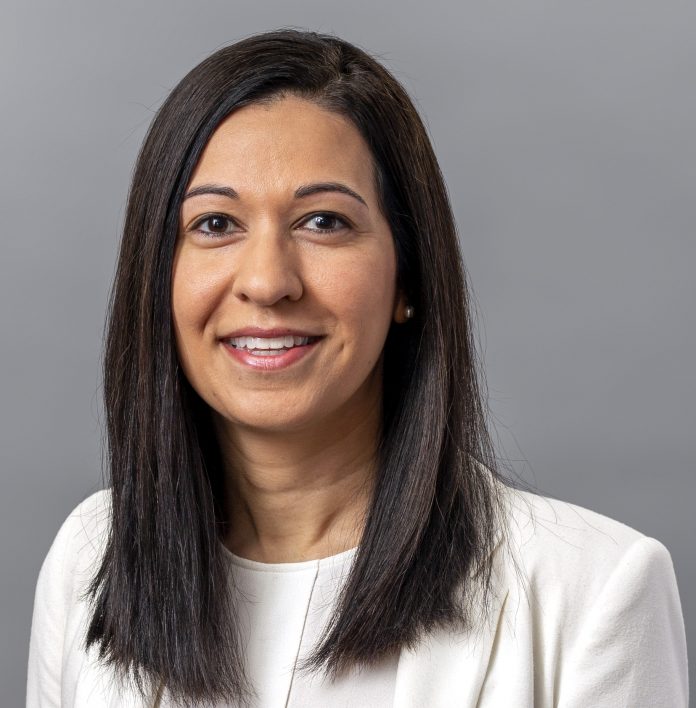By Max Bowen-max.bowen@northstarreporter.com
During cancer treatment, Dr. Asma Latif of Sturdy Memorial Hospital said that an informed patient can make a big difference.
Though it’s not uncommon to trust the professionals and not ask too many questions, it’s both encouraged and encouraging for a patient to come with topics of concern. Dr. Latif—Director of Breast Oncology at Sturdy Memorial and a medical oncologist at Sturdy Hematology and Oncology Associates—said that being educated on the disease and its treatment can be an empowering experience.
“A lot of people want to have an active role—some of that is emotional, asking why did this happen,” said Dr. Latif, adding that people shouldn’t worry that they’re wasting time or asking silly questions.
When meeting a patient for the first time, Dr. Latif said they can sometimes be shell-shocked by the news and not always retain what was discussed. It’s times like this that having a family member or friend with them to take notes or ask questions can help, as it gives them someone to talk about the situation. She’s found that those that take the time to research their diagnosis come in with good questions.
“I think it depends on what they’re feeling and what they need to hear about beating the cancer,” she said.
Kerri Medeiros, Senior Manager for Cancer Control Strategic Partnership at the American Cancer Society, said there are a number of resources that the organization makes available to patients. This helps when deciding what to ask and can make the treatment process go more smoothly.
“We try to really empower them to have those conversations and can help personalize the treatment and make adjustments,” said Medeiros.
A good source of information
Finding a credible source of information is difficult, given the wealth of web sites, podcasts, and recommendations of family and friends. Dr. Latif said it’s important to consider the source of any news or announcement when it comes to medical research. For example, an article recommending the use of a treatment can sometimes to be a well-written ad. She recommends that people check to see who wrote the article and their sources.
“A lot of great information is out there, but it’s a matter of being selective,” said Dr. Latif.
Anecdotal stories from others who had certain treatments or procedures can be problematic, as it would only apply to that one person. Medeiros said that everyone’s experience with cancer is different, and what worked for one person might not do as well for another.
“Cancer is so individual now that every experience is so different,” said Medeiros.
Latif and Medeiros both said that the trusted sources are the best way to go. Latif said the ACS, cancer.gov, hospitals, and the CDC are all reputable sources, as well as sites that end with edu, gov. Medeiro said the ACS works closely with hospitals and cancer centers to update the information posted to its site. She said one goal is to pass along facts that have been backed by science.
“It’s really going back to the facts and the information,” said Medeiros.
Battling myths and misinformation
Another side of the process to inform patients comes in battling myths people have about cancer. Dr. Latif recalled a time when someone suggested that starvation could kill cancer cells or that mammograms can cause radiation poisoning. In these situations, she said keeping an open mind is the way to go, to let the other side have their say before responding. She added that being empathetic to the patient can help during treatment.
“Even in those situations the most effective tool I have is to spend the time to talk about their statements and give perspective,” she said. “When I take that time, I find that people respond well.”
On the ACS web site, there is a section that addresses several myths about cancer and its treatments. This includes how to prevent cancer, how age can be a factor, and lifestyle-related breast cancer risks. ACS also has a medical content team comprised of doctors and oncology-certified nurses with knowledge of cancer care as well as journalists, editors, and translators with extensive experience in medical writing. Latif said responding to myths can delay treatment, sometimes while they pursue alternative methods.
“We really want patients and their family members to take an active part in their care,” said Latif. “It makes the treatment and recovery so much easier and so much more promising.”



